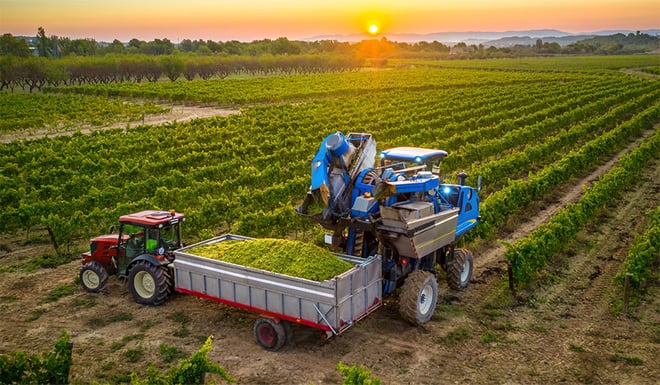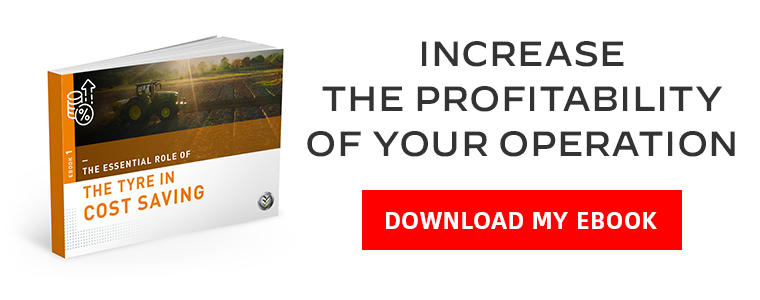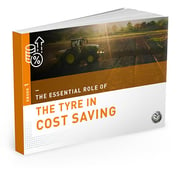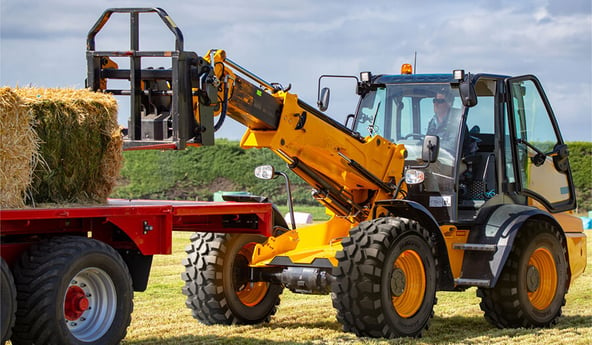Wine growing is no exception when it comes to excessive soil compaction hindering the root development of crops, whether we’re talking about vine stocks or wheat, the same causes produce the same effects.
While it’s true that winegrowing tractors tend to be much lighter than crop tractors, inter-row driving means that the tyres are very close to the vines and the soil compaction is more a result of repeated toing and froing than the actual weight of the tractor. This repeated driving over the same lines also causes gully erosion during heavy rainfall.
The consequences of this erosion and soil compaction are numerous and while they may not be immediately visible, the result is a long-term reduction in productivity and in the quality of harvests.
This article provides you with all the information you need to best manage the impact of your farming tyres on the quality of your wine harvest.
1. How my tractor tyres impact the soil in my vineyards
Contrary to seasonal crops, the fact that vine plants last for several decades, means that the repetitive passage of tractors over the exact same areas, year after year, will inevitably cause soil compaction.
Depending on the geographical area and the type of soil: limestone, clay-limestone (marly), clay-siliceous, stony, slatey, granitic, the compaction will not be the same, as the proportion of sand, clay, or silt, will play a role in the soil’s resistance to compaction.
The vine’s root system is what allows it access to water and mineral elements. These vines will suffer if the surrounding soil is compacted mechanically by overloaded tyres working at a too high inflation pressure for example. The soil’s porosity and aeration will be insufficient, reducing the circulation of water, which often circulates too much on the surface and not enough deep down.
Farming tyres cause excessive soil compaction
Repetitive passages close to the vines to eliminate weeds or the narrowness of vines can mean that your tractor tyres are just centimetres away from the vine stocks.
The resulting compaction can be found on different levels of the ground:
- Surface compaction eis directly linked to the inflation pressure of your tyres and impacts the soil up to 20 cm deep depending on the type of soil.
- Deep compaction is linked to the weight of machinery and can impact the soil as far as 60 cm deep. This compaction has the most impact on the vine root systems, with root depths varying from 30 to 70 cm depending on the variety of grape, and can have consequences on the quality and quantity of grapes harvested. Excessive compaction will penalise the regeneration of the soil, reduce the soil’s biodiversity and lead to its progressive asphyxia.
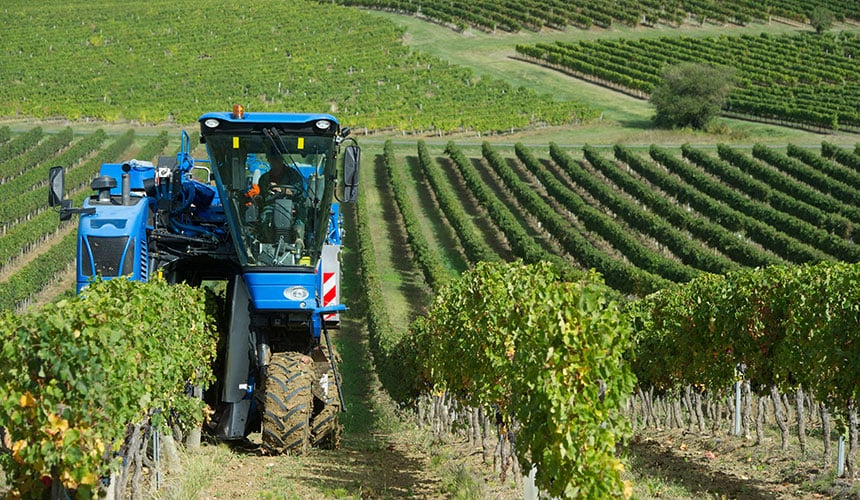 The weight of machinery causes soil compaction
The weight of machinery causes soil compaction
Compaction increases the risk of erosion in your fields
Sloping ground increases erosion, and in general vineyards are planted on hilly grounds, sometimes with extreme slopes. Soil compaction will change the structure and porosity of the soil, blocking drainage and systematically increasing surface erosion. Rain will wash the surface when it is exposed, reducing the reserves of nutriments in the soil.
Vineyard activities usually use relatively narrow, highly inflated tyres. To limit soil compaction, the latest generation tractor tyres are often equipped with “low pressure” tyres. This allows for an increased load capacity, and therefore the possibility to reduce inflation pressure.
The presence of ground-cover crops can also help to limit this erosion.
Soil compaction leads to excess surface humidity during wet seasons
Soil compaction prevents the infiltration of water and results in an excess of surface humidity. This high level of moisture over a long period can cause the development of fungal diseases or mould and can even kill the root system.
Compaction increases water scarcity during dry periods
Soil compaction prevents water from reaching the deeper levels of the soil which are an important reservoir for water and nutriments for the plant. The minerals found in the different levels of the soil also need water to form a chemical structure absorbable by the vines.
This lack of water can become a serious problem, especially during the plant’s initial growth period, as it will cause the young leaves to wither and die, and limit the size of the grapes, resulting in lower yields and reduced quality.
During dry periods, the lower layers will provide the vines with a regular supply of water. This regularity and stability in supply is the guarantee of the vine’s organoleptic qualities.
2. In what situations do tractor tyres compact vineyard soils?
1. Poor load management
The weight of the load is transmitted directly and very locally under each tyre.
Depending on your tools, the distribution of weight across your machine will be different and can cause an overload to the front or rear. Weighing each axle will enable you to determine the precise load and to establish the inflation pressure that best corresponds.
- Too much weight on the rear axle will raise the front axle and reduce the grip of the steering axle.
- The opposite also applies, with too much weight on the front axle, you will lose traction from the rear axle with the risk of increasing spin.
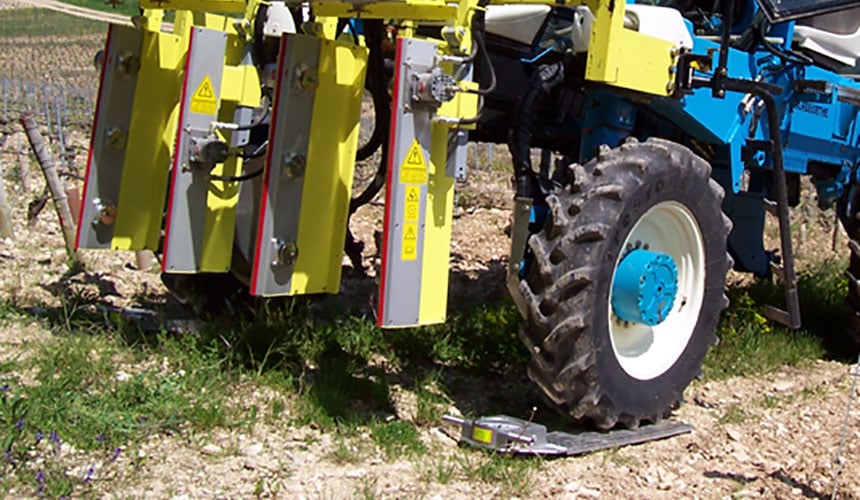 Weigh the front axle and then the rear axle
Weigh the front axle and then the rear axle
Managing the load therefore helps to avoid excessive soil compaction.
2. Incorrect adjustment of tyre pressure
To better understand the impacts of pressure on the ground, we can consider that the pressure inside the tyre corresponds to the pressure placed on the soil, so that if you increase the pressure to compensate for the weight of the tools, the pressure on the soil is also increased.
Choosing the right inflation pressure, perfectly adapted to the actual load and the working speed, is quite easy with extremely positive long-term outcomes on the quality of your harvests.
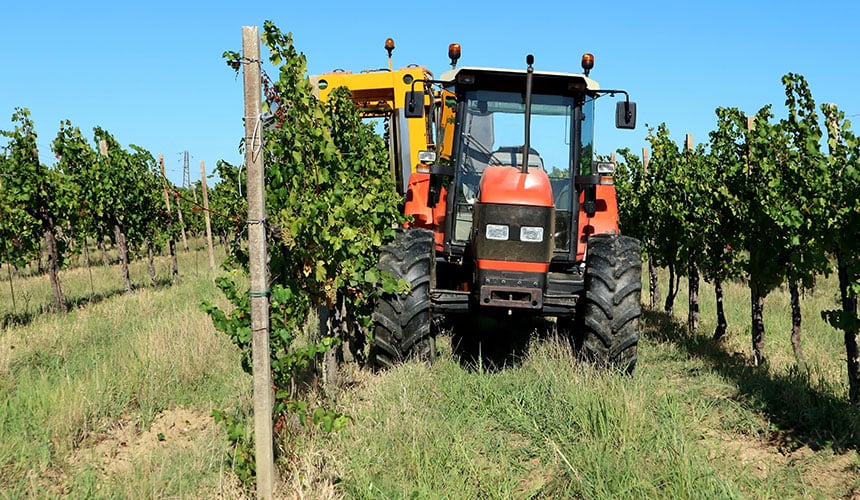 Wine grower tractor for inter row activities
Wine grower tractor for inter row activities
3. The number of passages
Repetitive passages over exactly the same tracks are extremely damaging to the vines, after spring ploughing, often in wet conditions, and all of the canopy management tasks carried out throughout the season (ridge ploughing, pricking, mechanical trellising, interrow shearing, pruning, harvesting, …) are each more chances of increasing soil compaction.
Over time, this repetitive passage around the same vines will have serious consequences on the quality of the harvest. To limit the problem, it is essential to use low pressure tyres that are adapted to the task.
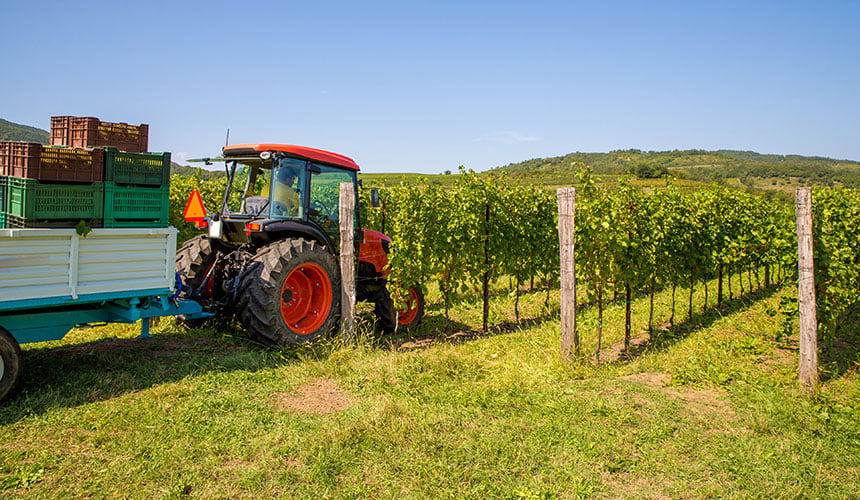 Winegrowing tractor with harvesting trailer
Winegrowing tractor with harvesting trailer
3. Which tyres are most suited to vineyards?
The soil in vineyards is generally quite full of stones and shists, often dry, and with greater slopes than in most crop fields, they require a sturdy tyre, capable of working at a low inflation pressure to limit soil compaction.
Bridgestone’s VX-TRACTOR tyres were specifically developed to cover these two objectives. The tyre is composed of a new compound containing vegetable oils to increase its resistance to damage and wear, it has 20% more rubber, and its specific range for winegrower tractors is available in the following sizes 260/70 R16, 280/70 R16 and 320/65 R16.
The involute lug design to improve traction
One of the main means of transmitting the engine power to the ground is through the tyre lugs. They grip the soil to transmit torque. They generate a horizontal compaction which transmits the tractive force to the ground. When leaving the soil, a traditional lug will create a “shovel” effect, raising the soil and reducing the tyre’s self-cleaning capacity.
The Bridgestone Involute lug design was optimised to avoid this “shovel” effect through a specific construction of the lugs which minimises soil disturbance. The specific angle of their profile allows for perfect self-cleaning of the tyre surface before it comes back in contact with the soil.
Vineyard tyres designed to last longer
The reinforced casing structure, the 6-ply tread belt and the exceptional sidewall design allow these tyres to easily work at lower inflation pressures when loaded and to avoid soil compaction despite repetitive passages close to the vines.
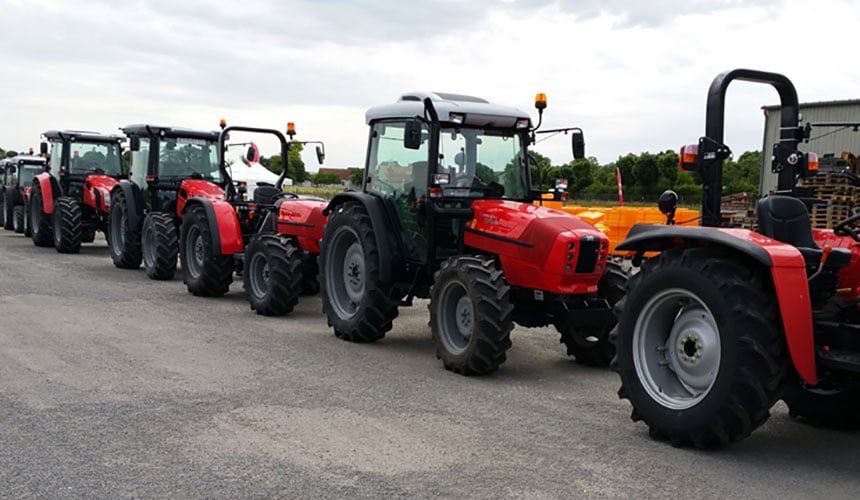 Winegrower tractors equipped with vineyard tyres
Winegrower tractors equipped with vineyard tyres
Tyres which allow you to save time on adjusting pressure
The reinforced structure of the casing and the exceptional sidewall design of these tyres allow them to easily drive on road surfaces while maintaining the same inflation pressure as for use in the vineyards.
The Bridgestone-agriculture.eu blog is written and administered by tractor tyre experts who are available to provide you with the advice you need on the subject of your agricultural tyres. They allow you to maximise your productivity with information on all subjects linked to tyres: Technical data for agricultural tyres – Agricultural tyre performance – Air pressure advice, Solutions to avoid soil compaction – Sprayer tyre pressure – Why and how to ballast your tractor tyres – etc.
To take it one step further and increase the profitability of your farm, les Experts du pneu provide a free, highly detailed eBook which explains the essential role of the agricultural tyre in your productivity.
Most people who read this article have also read some of the following articles which are listed by order of popularity:
- Buying guide: 10 important tips for choosing the right farming tyres
- How to make the right choice for your agricultural or tractor tyres?
- Increase the yield of your sprayer with narrow VF tyres
- Do you know which are the best agricultural tyres for your sprayer?
- A good agricultural tyre is the best guarantee of sprayer stability
- What is the best tyre for my combine harvester, IF, VF or CFO?
- A hi-tech agricultural tyre to save time during your harvest
- The top 5 reasons for choosing VF agricultural tyres
- The VF agricultural tyre: VF technology increases your productivity
- Cheap agricultural tyres, discount agricultural tyres, is it worth it?
This information is intended only to make you aware of the technical and functional aspects of agricultural tires and their use. It does not allow you to make a judgment or a definitive conclusion on a given problem. Only your agricultural tire expert is able to make a technical assessment and take a final decision, case by case.
Leave a
commentary
Your email address will not be published.
Required fields are indicated with *


